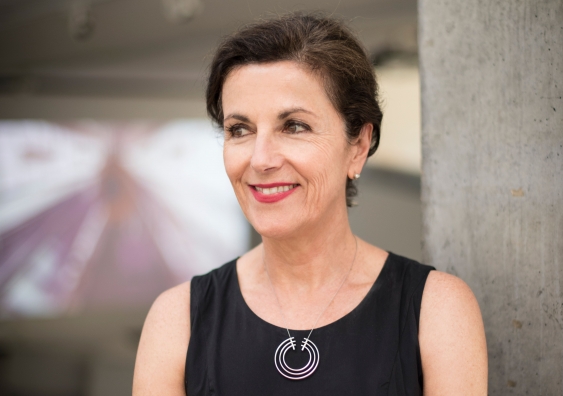UNSW's Helen Lochhead appointed to new planning review panel
UNSW Built Environment Dean Professor Helen Lochhead has been appointed to the NSW State Design Review Panel to advise on significant, large-scale developments.
UNSW Built Environment Dean Professor Helen Lochhead has been appointed to the NSW State Design Review Panel to advise on significant, large-scale developments.

Clare Morgan
UNSW Media & Content
(02) 9385 8920
clare.morgan@unsw.edu.au
Dean of the UNSW Faculty of Built Environment Professor Helen Lochhead has been appointed to the first NSW State Design Review Panel (SDRP), a panel of 40 independent experts who will be called on to advise on significant, large-scale developments in NSW.
The appointment follows the recent announcement that Lochhead will lead the Australian Institute of Architects (AIA) from May 2019.
Lochhead, who is also Chair of the Sydney South Planning Panel, has held many senior roles in NSW government, including Deputy Government Architect, and Executive Director roles at the Sydney Harbour Foreshore Authority and Sydney Olympic Park Authority. She is a member of the AIA National Council, Venice Architecture Biennale Committee and the AIA Institute & Foundation Boards.
The new SDRP was launched this week by the Minister for Planning and Housing, Anthony Roberts, and NSW Government Architect, Peter Poulet. Its 40 members were selected from more than 200 applications following a recruitment campaign in late 2017.
A number of UNSW Built Environment alumni were selected, including Honorary Professor Ken Maher, Mattias Hollenstein, Roger Jasprizza, Oi Choong, Michael Tawa, Mark Tyrell, Ingrid Mather, Gabrielle Morrish, Adjunct Professor Diane Jones and Adjunct Professor Ashley Dunn.
All panellists will play a key role in assisting the Government Architect and the Department of Planning and Environment with design and planning advice for State Significant Developments.
Roberts said the panel would work with the Government Architect NSW to review and consider key elements of the assessment process such as local character and design excellence.
“The State Design Review Panel pilot program will provide expert advice on the most significant developments in the state and will help ensure better design and planning outcomes for NSW,” Roberts said.
“Having a diverse group of expert and experienced voices guiding the decisions of the Department will not only ensure that we continue to have a strong assessment process, but also ensure the community has an even greater say on the future direction of planning and design.”
Although 40 members would make up the pool of experts, a panel of four to five members with the appropriate experience and qualifications would be assigned a project to be reviewed.
The 12-month pilot program will review future State Significant Developments, which include developments such as large-scale commercial and residential, hospitals, educational institutions, and tourist and recreation facilities.
The panel will also engage with councils through the inclusion of locally nominated panel members for the assessment of relevant applications.
It will also support the review and development of state planning policies, site specific Development Control Plans, precinct planning and urban renewal.
At the end of the pilot period, a recommendation will be made to the Government about the continuation of the NSW SDRP program, including any adjustments to how it may operate.